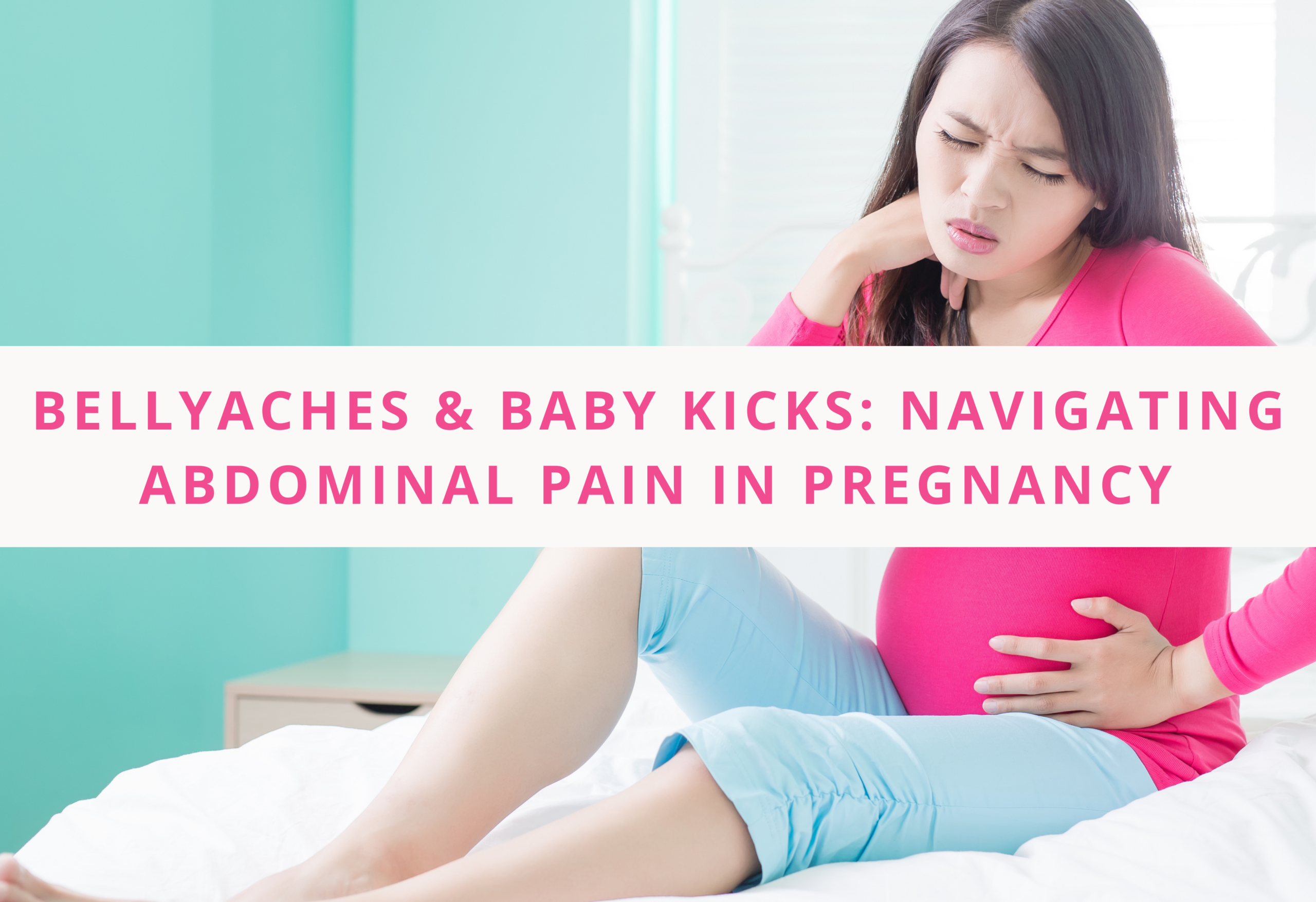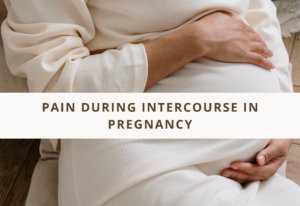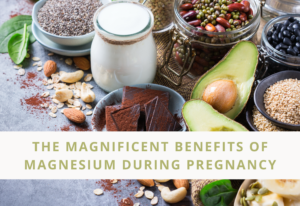Bellyaches & Baby Kicks: Navigating Abdominal Pain in Pregnancy
Navigating through the journey of pregnancy brings a mix of excitement and challenges, one of which can be abdominal or stomach pain. This common symptom experienced by many expectant parents often raises concerns about what’s normal and what might warrant a closer look. While abdominal discomfort is a frequent companion of pregnancy, due to the myriad of changes happening within your body, it’s important to understand its causes and when it might signal something more significant.
This guide aims to demystify abdominal pain in pregnancy, shedding light on when it’s just a part of the process and when it’s time to contact your midwife.
Common Causes of Harmless Stomach Pains
1. Ligament Pain:
The primary cause of ligament pain during pregnancy is the stretching of the round ligaments and it is a common cause of abdominal pain in pregnancy. These ligaments support the uterus and stretch as the uterus grows, which can cause sharp, jabbing pain, or a dull ache in the lower abdomen or groin area. This pain is often more pronounced on the right side but can occur on either side.
Activities that involve sudden movements, such as coughing, sneezing, laughing, or changing positions, can trigger or exacerbate this pain.
Though ligament pain is typically brief and harmless, it can be uncomfortable. Here are some strategies to help ease the discomfort:
- Rest and Change Positions Slowly: Take breaks and avoid sudden movements. When you need to change positions, do so slowly and deliberately to prevent straining the ligaments.
- Support Your Belly: Using a maternity support belt can help distribute your belly’s weight more evenly, reducing the strain on your ligaments.
- Apply Heat: A warm bath or a heating pad set on low can soothe the discomfort. Be cautious not to apply heat directly to your abdomen for extended periods.
- Gentle Exercise: Regular, gentle exercise can strengthen your muscles, which, in turn, can help support your expanding uterus and reduce strain on your ligaments. Prenatal yoga and stretching are excellent options.
- Chiropractic Care: Chiropractors who are Webster certified can offer tremendous relief when it comes to round ligament pain in pregnancy! Visiting your chiropractor regularly through pregnancy can help you have a more comfortable pregnancy experience.
2. Constipation:
Constipation is a common issue for many pregnant individuals causing abdominal pain in pregnancy, stemming from hormonal changes, particularly increased progesterone levels, which relax the muscles of the intestine and slow down digestion. Prenatal vitamins, especially those high in iron, along with the growing uterus exerting pressure on the intestines, can further contribute to this issue.
To alleviate and prevent constipation, incorporating high-fiber foods into your diet, getting adequate amounts of magnesium, staying well-hydrated, engaging in regular moderate exercise, and responding promptly to the urge for bowel movements are effective strategies. Adjusting the type or timing of iron supplementation, under a healthcare provider’s guidance, may also help. These lifestyle adjustments can significantly ease the discomfort of constipation during pregnancy, contributing to a healthier and more comfortable pregnancy experience.
Have you been battling with constipation this pregnacy? Read my blog on How To Relieve Constipation In Pregnancy here.
3. Trapped Wind or gas:
Trapped wind or gas is a common yet uncomfortable abdominal pain in pregnancy that many expectant parents face. It occurs due to the hormonal changes your body undergoes, specifically the increase in progesterone levels, which relax the muscles in your digestive tract. This relaxation slows down digestion, allowing gas to build up and leading to bloating, discomfort, and sometimes abdominal pain. Additionally, as the uterus expands, it places pressure on your abdominal cavity, which can further exacerbate the feeling of being bloated or having trapped wind.
To alleviate and prevent trapped wind, consider making dietary adjustments such as eating smaller, more frequent meals, avoiding gas-producing foods like beans, cabbage, and fried foods, and drinking plenty of water to aid digestion. Incorporating gentle exercise, such as walking, can also help stimulate the digestive system and release trapped gas. Moreover, paying attention to your posture while eating and avoiding talking while chewing can reduce the amount of air swallowed, helping to minimize gas buildup.
When to Contact Your Midwife
However, it’s important to stay vigilant. Contact your midwife immediately if you experience any of the following along with your stomach pain:
- Bleeding or spotting
- Regular cramping or tightening
- Unusual vaginal discharge for you
- Lower back pain
- Pain or burning sensation when you pee
- Severe pain that doesn’t improve after 30 to 60 minutes of rest
Severe Conditions Associated With Abdominal Pain in pregnancy
Certain conditions require urgent medical attention:
- Ectopic Pregnancy: Symptoms include tummy pain and bleeding, pain at the tip of your shoulder, and discomfort when using the bathroom. This requires immediate medical intervention.
- Miscarriage: Cramping pains and bleeding before 24 weeks could indicate a miscarriage.
- Pre-eclampsia: Characterized by pain under the ribs, severe headaches, vision problems, and swelling. This condition generally occurs after 20 weeks and requires hospital monitoring.
- Premature Labour: Experiencing regular cramps (10 or more cramps in an hour) or tightening before 37 weeks could signify premature labor.
- Placental Abruption: This serious condition involves constant severe pain and often bleeding. Immediate hospital care is needed.
- UTI (Urinary Tract Infection): Common in pregnancy, UTIs can cause abdominal pain and sometimes painful urination but are easily treatable.
While abdominal pain in pregnancy is often harmless, being aware of the signs that indicate something more serious is essential. Always err on the side of caution and consult with your midwife or healthcare provider if you’re unsure or if your discomfort includes any of the symptoms mentioned above. Prioritizing your and your baby’s health by staying informed and vigilant is vital to navigating pregnancy safely.
Additional resources about abdominal pain in pregnancy
- Stomach pain in pregnancy from the UK National Health Service
Pregnancy Pains & Discomfort: Types & Relief from the Cleveland Clinic
- Management of acute abdomen in pregnancy: current perspectives from the National Library of Medicine
- Learn more about common pregnancy discomforts here.




